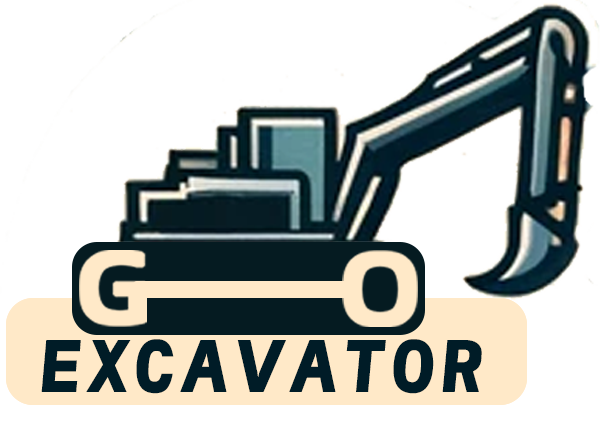
Purchasing a used excavator can be a smart financial decision, offering significant savings over new models. However, buying used equipment comes with its own set of risks and considerations. To ensure you make the best choice, it’s essential to understand what to look for when evaluating a used excavator.
1. Set a Budget and Know Your Needs
Before you begin your search, it’s crucial to set a clear budget and define the requirements for the excavator. Consider the type of work you will be doing, the size of the job site, and the power needed. There are different types of excavators, such as mini excavators, medium-sized machines, and large models, each suited for specific tasks. Knowing your needs will help you narrow down the best options.
Factors to Consider:
- Job Size: Is the excavator intended for small-scale construction, landscaping, or large commercial projects?
- Capacity and Reach: Determine the size and reach capabilities that suit your needs.
- Type of Excavator: Hydraulic, cable-operated, or mini excavators may all be available. Choose based on the nature of your project.
2. Inspect the Machine’s Condition
The overall condition of the excavator is one of the most important aspects to consider. Look beyond the surface and ensure that the machine has been well-maintained. Start by conducting a visual inspection and checking for visible signs of wear and tear, rust, or any cracks in critical areas.
Areas to Focus On:
- Boom, Stick, and Bucket: Check for cracks, dents, or signs of welding.
- Tracks and Undercarriage: Inspect the tracks for uneven wear, rust, or damage.
- Hydraulic System: Look for leaks in the hydraulic hoses and cylinders.
- Engine: Ensure the engine starts smoothly and doesn’t emit unusual noises or excessive smoke.
3. Hours of Operation
One of the most important indicators of an excavator’s usage is its operating hours. Heavy usage often leads to increased wear and tear, which could mean more maintenance is needed in the near future. Generally, an excavator with fewer hours is preferable, but hours alone don’t tell the whole story—how the machine was used is equally important.
Tips:
- Low Hours Doesn’t Mean New: Machines with fewer hours may have been idle for extended periods, which could result in issues such as rust or fluid degradation.
- Maintenance History Matters: A well-maintained excavator with high hours can sometimes be a better purchase than a poorly maintained machine with low hours.
4. Maintenance Records and Service History
Request the excavator’s maintenance records to gain insight into how well it was maintained. Regular servicing, including oil changes, hydraulic system inspections, and component replacements, is essential for the longevity of the machine. Verify whether parts have been replaced or if major repairs have been done, as this can affect the excavator’s future reliability.
What to Look For:
- Oil Changes and Fluid Checks: Regular oil changes and hydraulic fluid maintenance are crucial.
- Component Replacements: See if key parts like the boom, stick, or undercarriage have been replaced.
- Frequency of Service: Consistent service records indicate proper care.
5. Check for Leaks
Hydraulic leaks can be costly to repair, so ensure the machine isn’t leaking fluids such as oil or hydraulic fluid. Pay close attention to the hoses, joints, and hydraulic cylinders. Also, inspect the engine for signs of oil or fuel leakage. Leaks can be an indication of poor maintenance or imminent failure.
Areas to Inspect:
- Hydraulic Hoses and Cylinders: Check for wet spots or oil stains.
- Engine and Cooling System: Ensure the engine compartment is dry and clean.
- Fluid Levels: Low fluid levels could indicate leaks or inadequate maintenance.

6. Test the Excavator’s Performance
If possible, take the excavator for a test drive. Testing the machine under load allows you to identify any mechanical issues that may not be immediately visible. During the test, listen for unusual sounds and monitor how the excavator responds to your controls.
Key Tests to Perform:
- Hydraulic Power: Check the hydraulic systems by moving the boom, stick, and bucket.
- Engine Performance: Ensure smooth start-up and operation.
- Track Movement: Drive the machine and observe how the tracks respond.
- Control Functions: Test all control panels to ensure functionality.
7. Research the Excavator’s Model and Manufacturer
Before purchasing, research the specific model of the excavator to learn about its performance, reliability, and any common issues. Some brands and models are known for durability, while others may have frequent maintenance problems. Choosing a reputable brand can help ensure the excavator lasts longer and performs well.
Popular Brands to Consider:
- Caterpillar: Known for durability and widespread dealer support.
- Komatsu: Renowned for strong hydraulic systems and longevity.
- John Deere: Popular for ease of use and availability of replacement parts.
8. Verify the Ownership and Legal Documentation
Ensure that the seller has proper ownership of the excavator and can provide you with the necessary legal documentation, such as a bill of sale and any relevant titles. Also, check if the excavator has any liens or encumbrances attached to it. This ensures that the transaction is legitimate and avoids potential legal issues.
Key Documents to Request:
- Bill of Sale: A legal proof of the transaction.
- Maintenance Logs: Proof of upkeep and repairs.
- Ownership History: If applicable, check for multiple previous owners.
9. Consider the Cost of Future Repairs
While buying used machinery offers savings upfront, it’s essential to consider future repair costs. Excavators that have been heavily used may require new parts or frequent maintenance soon after purchase. Investigate the cost of parts and service for the specific model you are considering.
Potential Costs to Factor In:
- Replacement Parts: Research the cost of common replacements, such as tracks or hydraulic hoses.
- Service and Repairs: Estimate labor costs for routine maintenance or repairs.
- Warranties: Check if any remaining warranties are transferable.
Buying a used excavator can be a great investment if done correctly. By carefully inspecting the machine, reviewing its maintenance history, and considering potential future costs, you can ensure that the excavator you purchase will meet your needs without causing unexpected expenses. Always conduct thorough research on the model and brand, and don’t hesitate to bring in a professional inspector if you’re unsure.
A Comprehensive Guide to Buying a Excavator Second Hand
Purchasing a second-hand excavator can be a cost-effective solution for your construction or landscaping needs. However, buying used machinery comes with its own set of challenges and considerations. This comprehensive guide will walk you through [...]
Comprehensive Guide to Hyundai Mini Excavators: Features and Prices
Mini excavators have become indispensable tools in the construction and landscaping industries. Hyundai Construction Equipment, a global leader in heavy machinery, offers a range of mini excavators known for their reliability, efficiency, and advanced features. [...]
How to Extend the Service Life of Excavator Parts
Excavators are indispensable machines in the construction and mining industries. They perform heavy-duty tasks that demand robust components and meticulous maintenance. Extending the service life of excavator parts not only reduces operational costs but enhances [...]
Kymron Excavators: Innovative, Sustainable Construction Machinery
In the dynamic world of construction and heavy machinery, Kymron has emerged as a game-changer. Specializing in advanced excavator technology, Kymron is redefining industry standards with its commitment to innovation, efficiency, and sustainability. Company Overview [...]
Bulldozer vs. Wheeled Excavator: Which Machine is Better for Moving Soil?
Moving soil is a fundamental task in construction, landscaping, and earthmoving projects. Choosing the right machinery for the job can significantly impact efficiency, cost, and project timelines. Two of the most commonly used machines for [...]
Why Are Small Excavators Favored? A Comprehensive Guide
In the world of construction and landscaping, efficiency and versatility are key. Among the myriad of machinery available, small excavators have risen in popularity. But what makes them so favored? Introduction to Small Excavators Small [...]




